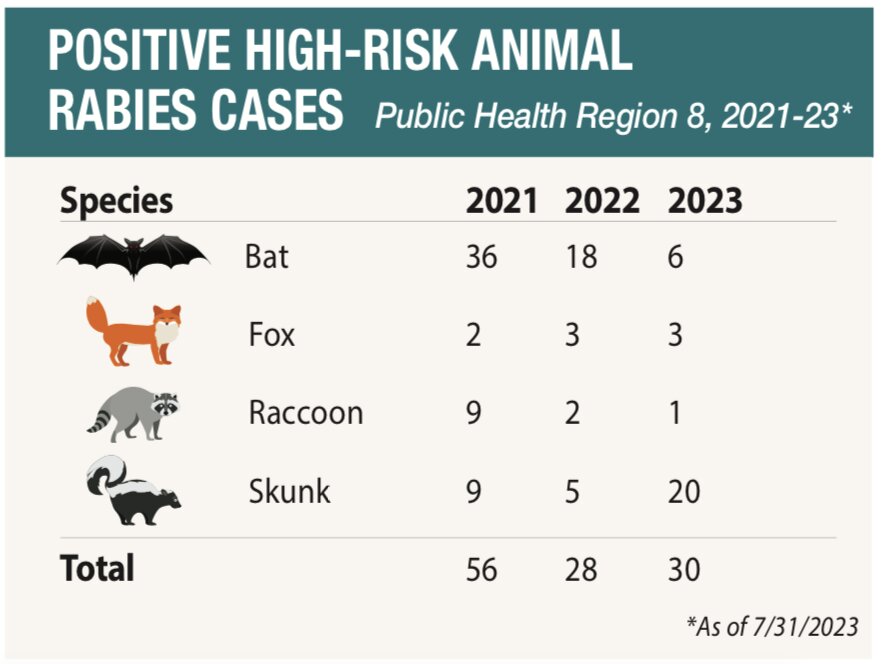Rabies outbreak grows in South Texas; skunk found in Gonzales
A rabies outbreak across South Texas has public health officials warning residents and animal health workers to exercise caution, including in Gonzales, where a skunk was reported to have tested positive for the disease.
“Texas Department of State Health Services (DSHS) Public Health Region 8 has seen an increase in skunks testing positive for rabies in Victoria County and surrounding areas,” PHR 8 announced in a release to local media. “The south-central skunk rabies variant is endemic to Texas, and rabid skunks present significant exposure risks to domestic animals and humans with a concern for spillover into other wildlife species.
“DSHS recommends people in the affected and neighboring counties be vigilant to avoid contact with skunks, foxes, and other wildlife, especially those exhibiting abnormal behavior. Pet owners should also ensure pets are vaccinated against rabies as required by state law.”
The City of Gonzales announced Tuesday there had been a rabies outbreak in the city and that a skunk was captured that had been showing signs of rabies. The animal tested positive.
“If you see any animals displaying signs, please contact dispatch at the Police Department,” the city stated. “Animal bites (to humans or pets) and exposures should be promptly reported to the local rabies control authority via the Police Department at 830-672-8686. The PHR 8 Zoonosis Control Program can provide recommendations on animal quarantine, testing and rabies risk assessment for human exposures.”
There have been a total of 30 rabid animals reported in DSHS Public Health Region 8 in 2023, of which 20 have been skunks. In addition to the one in Gonzales County, there have been 11 in Victoria County, three in Lavaca County, two each in Atascosa and Kerr counties and one in Wilson County. There have also been six rabid bats, three rabid foxes and one rabid raccoon.
Rabies is a viral disease that affects the central nervous system and is most often transmitted by rabid animal bites. A person may get rabies from a rabid animal when it bites them or the animal’s saliva touches their eyes, nose, mouth, or a break in the skin. In rare cases, people can get rabies from scratches, abrasions, or open wounds that are exposed to saliva or other infectious material from a rabid animal.
High-risk species for rabies in Texas include skunks, bats, foxes, raccoons, and coyotes, and those high-risk species should be tested for rabies if they have had contact with people or pets. People who are bitten by or exposed to an animal should notify animal control and consult with a health care provider to determine the need for rabies post-exposure prophylaxis.
People can’t tell if an animal has rabies by just looking at it. Avoid contact with wildlife and unknown animals. People with a bite, scratch, or other exposure to an animal should immediately wash the wound with soap and water and talk to a healthcare provider. The location of the animal, if known, should be reported as soon as possible to the local rabies control authority and/or animal control.
Pet owners should ensure their dogs and cats are vaccinated against rabies, as required by state law. Animal owners should also consider vaccination of livestock and other animals that may have frequent interaction with the public and/or risk of exposure to rabid wildlife.
Comments







